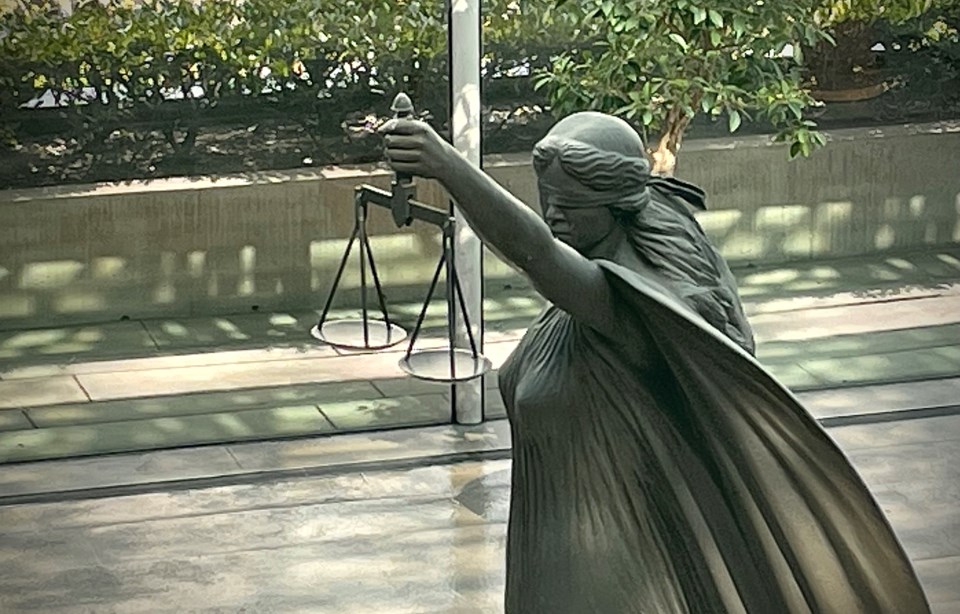The issue of sexual assault emerged as a “key” issue for the defence at the trial of a man accused of murdering a 13-year-old girl found dead in a Burnaby park six years ago.
During his cross-examination of forensic pathologist Dr. Jason Morin at the trial of Ibrahim Ali Tuesday, defence lawyer Ben Lynskey suggested consensual sex could have been the source of injuries to the victim’s genital region and semen found inside her body.
Ibrahim Ali is on trial in B.C. Supreme Court for first-degree murder in the death of the teen, whose body was found in Central Park on July 19, 2017, less than two hours after her family reported her missing.
The victim’s identity is protected by a publication ban.
Last week, Crown prosecutor Isobel Keeley took Morin and the jury through findings in his autopsy report, including injuries to the victim’s vagina, anus and rectum.
Morin testified he had also found semen inside the girl.
He said he had focused attention on certain clothing and areas of the body because background information supplied by police and his own “initial observations” suggested the victim might have been sexually assaulted.
But Lynskey objected, saying Morin shouldn’t be allowed to share his opinion on whether there had been a sexual assault because that wasn’t his area of expertise.
He went on to say sexual assault is “one of the key issues in the case” for the defence.
Justice Lance Bernard overruled the objection, saying Morin had only talked about the possibility of a sexual assault.
This week, however, Lynskey returned to the topic during cross examination Tuesday, challenging Morin on the “initial observations” he had referenced earlier.
Lynskey noted the injuries could have happened during consensual sex, and Morin agreed.
“You can’t say whether these injuries, in isolation, were the result of forced or non-forced intercourse, fair?” Lynskey asked.
“Correct. I can’t say the characteristics of the injuries themselves allow me to make any distinction,” Morin said.
Lynskey also noted there was no way for Morin to know whether the vaginal, anal and rectal injuries had happened at the same time as “any sort of strangulation or anything else.”
“You weren’t present when the deceased had sex?” Lynskey asked.
“I was not.”
“And you obviously weren’t present at the time of their death?”
“I was not.”
“And you can’t say how many people the deceased had sex with, whether it was one, multiple, as part of the same incident – you don’t know, right?”
“Correct. I can’t make comment on that.”
At one point Lynskey went so far as to suggest Morin was “favouring the Crown” in his characterization of a possible injury to the victim’s cervix.
“You’re straining to find evidence of a sexual injury since you know that’s the Crown’s theory,” he said.
“I don’t agree with you,” Morin replied.
The Crown's theory is that Ali attacked the 13-year-old in Central Park, dragged her into the forest and strangled her to death while sexually assaulting her.
The trial continues.
Morin’s cross examination is expected to conclude Wednesday.
Follow Cornelia Naylor on Twitter @CorNaylor
Email [email protected]





